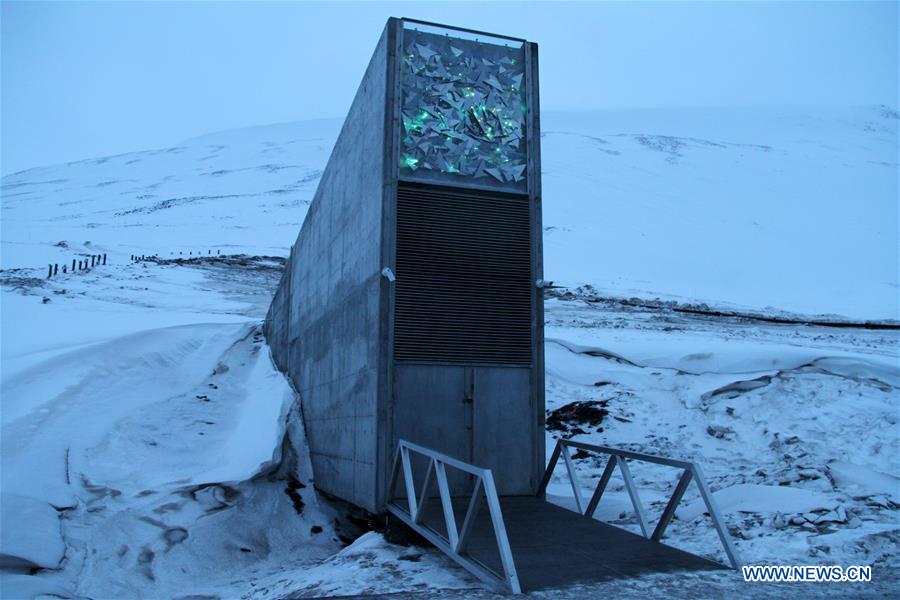 ?
?Photo taken on Feb. 26, 2018 shows the entrance of the Svalbard Global Seed Vault in Longyearbyen, Norway. More than one million seed samples from gene banks worldwide have been stored in a vault on Norway's remote Arctic archipelago of Svalbard as it marked the 10-year anniversary of its opening on Monday. (Xinhua/Liang Youchang)
LONGYEARBYEN, Norway, Feb. 26 (Xinhua) -- More than one million seed samples from gene banks worldwide have been stored in a vault on Norway's remote Arctic archipelago of Svalbard as it marked the 10-year anniversary of its opening on Monday.
As part of its anniversary celebration, over 76,000 new seed samples were carried into the Svalbard Global Seed Vault, which is located deep inside a mountain near the town of Longyearbyen and called by some as the "doomsday vault."
"I am extremely happy to announce that today for the first time more than one million seeds will have passed through these doors to be secured forever," Norway's Minister of Agriculture and Food Jon Georg Dale said just outside the entrance to the seed vault.
As he made the speech, representatives from 23 international gene banks carried their seed samples in sealed boxes to the seed vault.
The purpose of the Svalbard Global Seed Vault, which opened on Feb. 26, 2008, is to provide safe storage for duplicates of seeds stored in national, regional and international gene banks worldwide.
The goal is to maintain the genetic variation within the world's food plants, ensuring that agricultural and industrial crops are not eradicated in local or global disasters such as war, terrorism and natural disasters.
The parties that finance and operate the Svalbard Global Seed Vault are the Norwegian Ministry of Agriculture and Food, the Bonn, Germany-based Global Crop Diversity Trust and the Nordic Genetic Resource Center (NordGen), whose main office is in Alnarp, Sweden.
As the seed vault offers its services to all types of gene banks seeking security storage for unique seed samples, seed samples in the vault remain the property of the gene banks that deposit them.
The full capacity of the Svalbard Global Seed Vault is 4.5 million different seed types and it can therefore house duplicates of all the unique seed types found today in the gene banks around the world, as well as new seed types that will be gathered in the future.
In September 2015, Syria's war led to the first-ever withdrawal of seeds from the vault. The seeds had initially sent to Svalbard from a gene bank in Aleppo, Syria.















